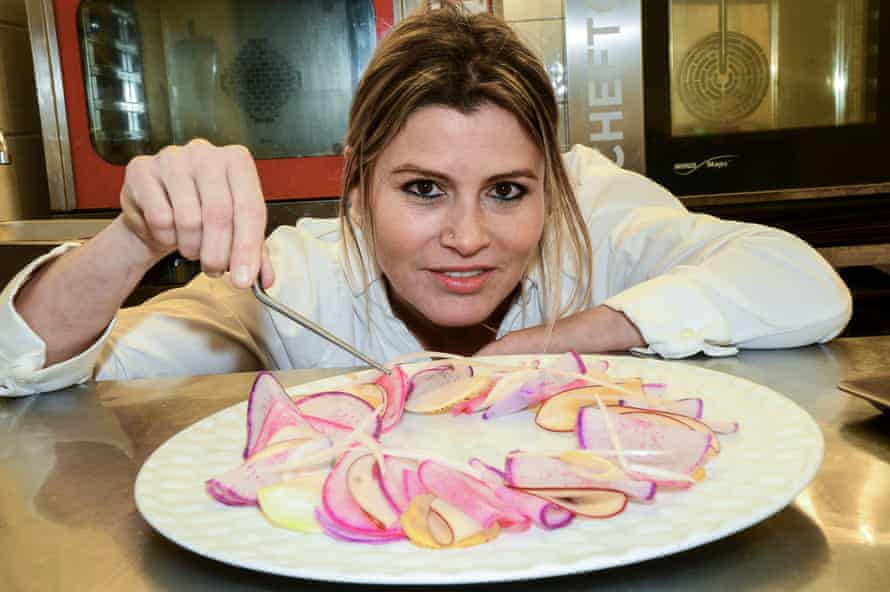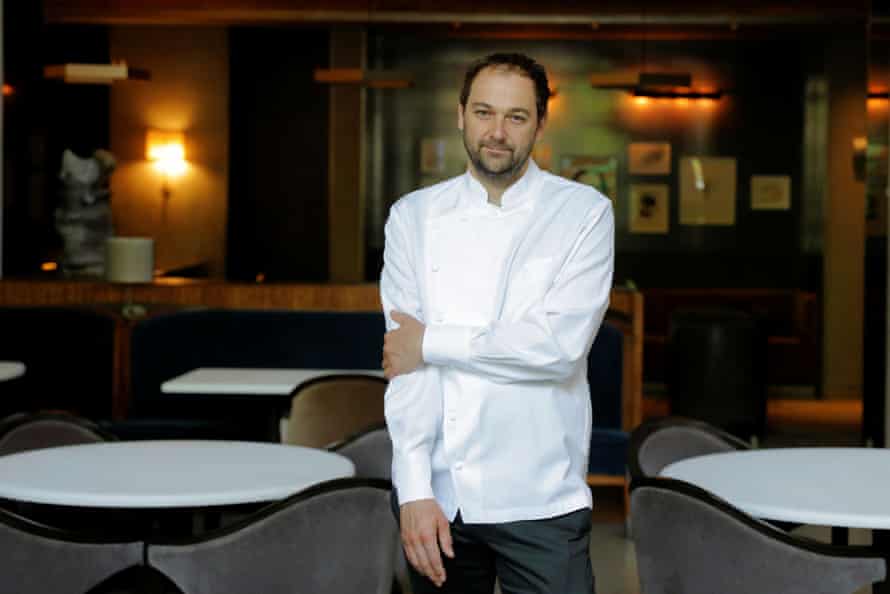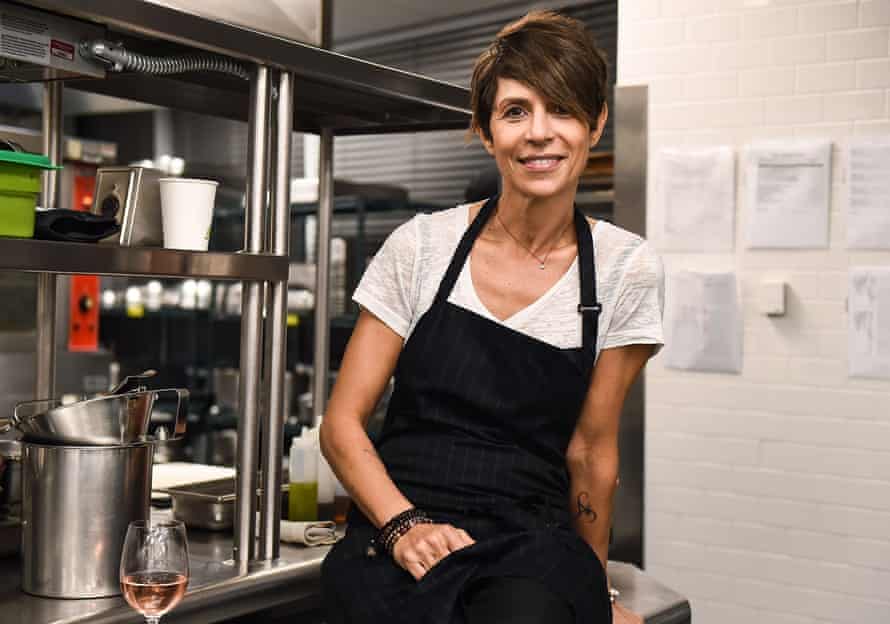Alexis Gauthier used to sell 20kg of foie gras a week. Now the chef, whose London-based restaurant became entirely vegan in 2021, only sells a plant-based version. Since becoming vegan, he admits, Gauthier Soho has “lost a lot of customers, sadly”. But he says he has gained even more new diners, all looking for something different and sustainable and prepared to pay the price.
Gauthier is not the only chef to abandon the animal produce traditionally associated with fine dining. While the number of meat-free menus has been burgeoning for some time in lower- and mid-priced restaurants, now a growing number of the world’s top chefs are starting to put plants centre stage.
Chef Daniel Humm has created headlines on both sides of the Atlantic twice in recent months. First when he announced that his three Michelin-starred New York restaurant, Eleven Madison Park, would be reopening after a pandemic hiatus in June minus meat or seafood on its $335 menu (but not completely free of animal products. “The current food system is simply not sustainable,” he said).

Then, in November, it was announced that he had parted ways with five-star hotel Claridge’s after it rejected his “bold new vision” of a fully plant-based menu for its restaurant, Davies and Brook, which serves, amongst other things, foie gras and caviar. The hotel said it was “not the path we wish to follow”.
And in January, Geranium in Copenhagen, ranked number two by the World’s 50 Best Restaurants, will unveil a new meat-free menu of vegetarian, plant-based and seafood dishes. Announcing the move, chef Rasmus Kofoed said that he hadn’t eaten meat for the last five years at home, “so to no longer use meat on the new menu was a logical decision and a natural progression for Geranium”.
Even the Michelin Guide, which rarely used to award stars to vegetarian and vegan restaurants, appears to be moving in a plant-based direction. Last year, Claire Vallée’s restaurant ONA (which stands for origine non-animale) in Arès, near Bordeaux, became the first vegan restaurant in France to be awarded a star. They have also introduced green stars, a new award to recognise sustainability.
Gauthier – whose plant-based menu is 50% vegan versions of classic French dishes like soufflé or foie gras and the other half is more experimental – said many chefs, particularly French chefs, fear losing Michelin stars and remain bound by the “tyranny of classical French gastronomy”. The ongoing influence of Auguste Escoffier, author of the 1903 Le Guide Culinaire and former director of kitchens at the Savoy, is, he said, a “massive problem for French gastronomy to move forward”.
By contrast, Gauthier sees plant-based food as an opportunity to be truly creative. “We can write recipes that are totally out of the ordinary and nobody can come and say ‘well actually, it should not be done like that’ because it’s all new. That’s the beauty of it.”

While animals are off the menu, he said everything else remains the same. “It’s remaining 100% French, the flavours, all the tralala you think about when you go to a French restaurant.” So far, he said, the move to veganism has been “a commercial success”. As chef patron of one ofthe few high-end vegan restaurants in London, Gauthier hopes more chefs will follow suit. “Not a lot of chefs are brave enough to embrace a fully vegan restaurant, but a lot are looking into it and testing the water,” he said.
French chef Dominique Crenn, stopped serving meat at her three Michelin-starred San Francisco restaurant Atelier Crenn in 2018. Speaking from her farm in Sonoma, where she grows produce for her three restaurants, she said it is vital that restaurants and consumers know where their products come from and do not support factory farming.
But, unlike some, she is not averse to experimenting with lab-grown meat. She has partnered with Upside Foods to develop recipes for cultured chicken that, once it gets regulatory approval, she plans to serve at her restaurant. She said that when she first heard about the concept in 2015, “I thought that was genius because the bottom line is we’re not going to have the world eating just vegetables. There’s going to be people that are always going to want to eat meat or fish and all that, so I think it’s about finding ways of rebalancing this world.”

She is also looking at cutting cow’s milk from her establishments, which she hopes to do in 2022 and, when it comes to seafood, she works with small-scale fishers and mostly serves molluscs. “I’m just looking at what I can do and keep working on to become better and become more conscious.”
In the UK, younger people are leading the charge when it comes to switching to a vegan diet, while the availability of documentaries such as Cowspiracy, Seaspiracy and The Game Changers on Netflix has opened up conversations around the subject.
But, in many ways, UK institutions have been slow to catch up. The latest series of BBC One show MasterChef: The Professionalsdrew criticism after it featured just 10 vegetarian savoury dishes out of 100 and only two for vegans. Channel 4’s The Great British Bake Off also attracted ire after its first vegan contestant, Freya Cox, was required to use animal products in one of the rounds.
And while recent years have seen a proliferation of lower-budget or “grab and go” vegan eating-out options, top-end establishments have proven more reluctant. Peter Harden, co-founder of Harden’s restaurant guides, said Claridge’s “missed a trick” by not taking up Humm’s plant-based menu, but that perhaps it indicates that the market is not yet big enough. “They obviously did it because they thought it would be commercial suicide. And I think that highlights the problem, especially for top chefs, is that when people are eating out and spending a lot of money then a very large proportion of them do expect to be able to eat meat.”
Post a Comment